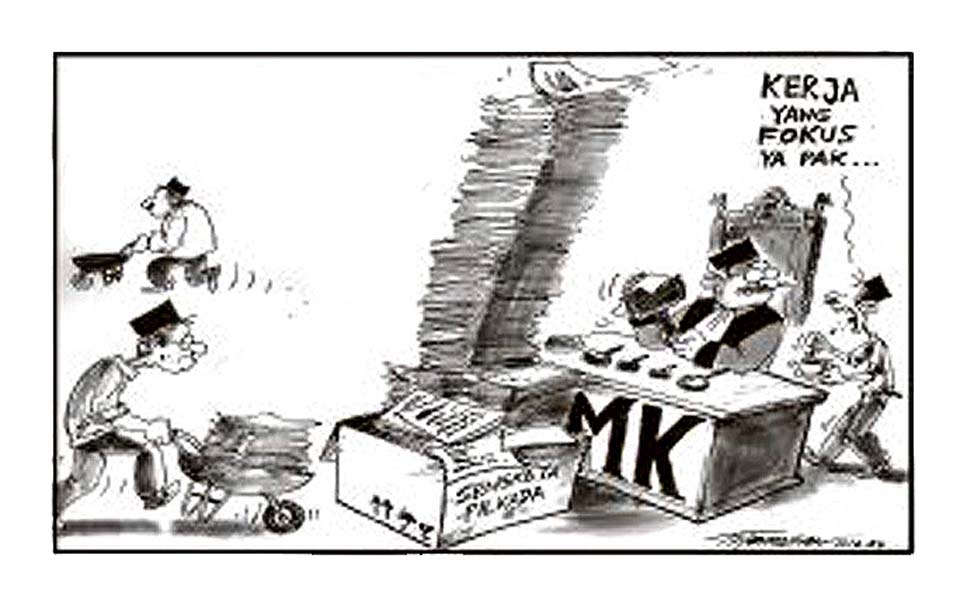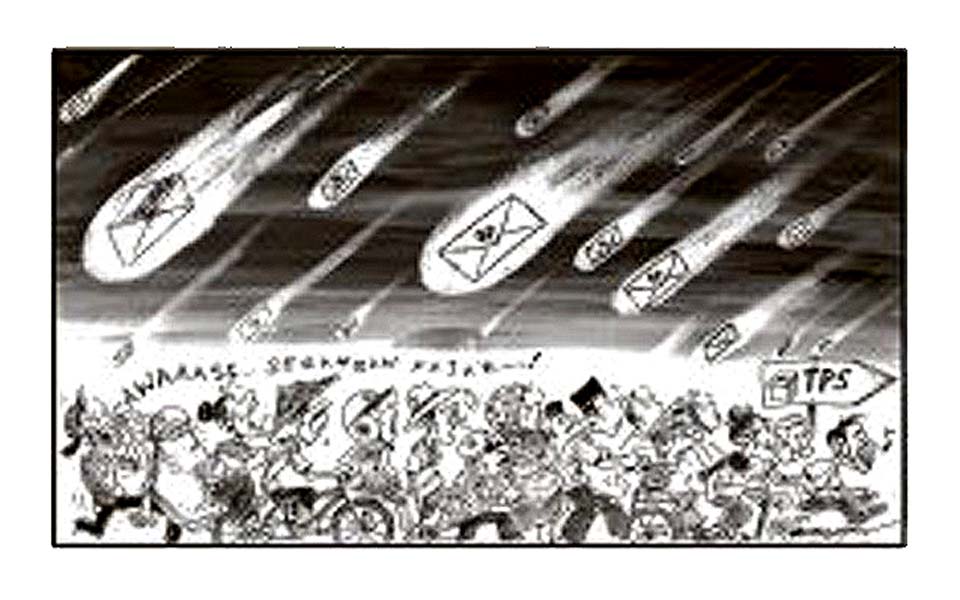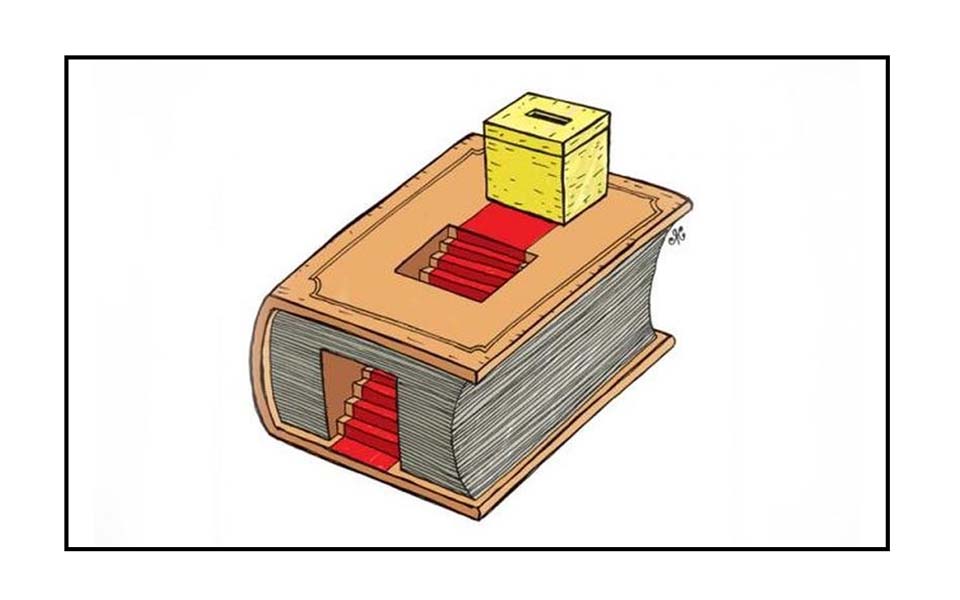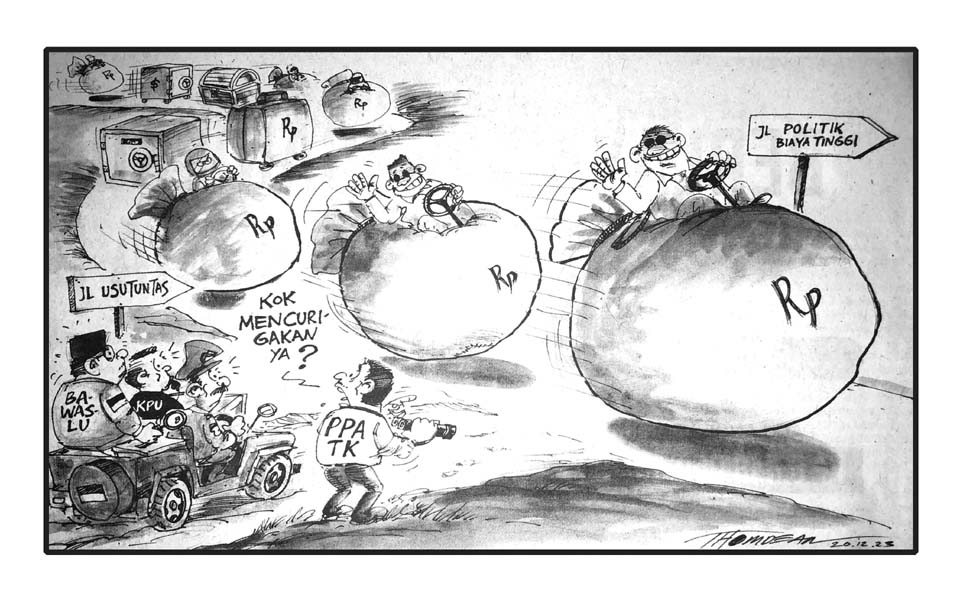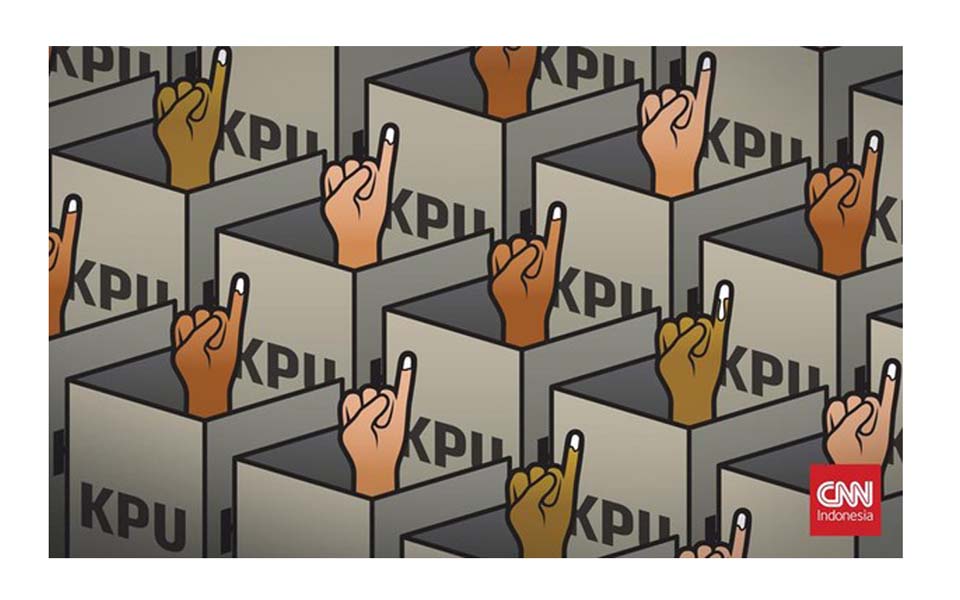
Jakarta – The number of citizens who did not use their right to vote, or golput, in the 2024 simultaneous regional elections was quite high. In several regions, the number of votes garnered by the winning tickets was far below the golput figure.
At the provincial level for example, in the Jakarta gubernatorial election the golput figure reached 3,489,614 people (42.48 percent) of the total fixed voter list (DPT) of 8,214,007 people. And, in the North Sumatra gubernatorial election, the abstention rate reached 50.69 percent of the total DPT of 10,771,496 people.
At the district and municipality level for example, in the Bogor regency election (Pilbup) the golput vote reached 1,620,838 or the equivalent of 41 percent.
The golput figure actually exceeded the number of votes garnered by the winning candidate pair in the Bogor election, Rudy Susmanto-Ade Ruhandi, who only obtained 1,559,328 votes.
The "golput victory" has since became one of the weapons for losing parties in the regional elections to file lawsuits contesting the results with the Constitutional Court (MK).
According to Paramadina University political observer Arif Susanto, in formal Indonesian law, the high golput figure does not affect the results of the general or regional elections.
Susanto said that under the Regional Election Law (UU Pilkada) there is no stipulation that a high golput figure can annul the election results. In his view however, a high golput figure could minimalise the elected leader's legitimacy in the eyes of their constituency.
"But if we question the legitimacy, of course it will affect the legitimacy. Starting from the candidates to the one that are elected", Susanto told CNN Indonesia Tuesday December 10.
Arif also said that voters who decide to golput cannot be punished because this is an individuals' right. However, he said that if someone mobilises others to golput or directs voters to choose other candidates using money politics, they can be subject to legal sanctions.
Susanto also sees that other countries with more mature democracies that tend to have the freedom to vote have also experienced a decline in voter participation.
However, despite the low voter participation rate in elections, people in these countries are very active in participating in politics outside of the actual election.
"Is the decline in the participation rate in elections followed by a decrease in or increasing political participation outside the elections? If political participation outside the election has increased, this means, yes, that perhaps this is a symptom of the increasing quality of participation", he said.
Meanwhile, the government through the Ministry of Home Affairs (Kemendagri) has its own analysis about the high golput figure in the 2024 regional elections.
Deputy Home Affairs Minister (Wamendagri) Bima Arya Sugiarto says there were a number of factors that caused the golput figure in the regional elections to be quite high. Two of these were boredom and bad weather on voting day.
"It varied, because of administrative factors, because of ideological factors, because of technical factors in the organisation with the Pilkada being too close to the Pileg [legislative elections], the Pilpres [presidential election], perhaps also there is the factor, the factor of voters being fed up, then there may also be the weather factor, disasters", said Sugiarto at the parliamentary complex in Jakarta last Tuesday.
In addition to this there was the factor of fewer polling stations (TPS), so voters had to travel too far to get to polling stations. "So there were many factors, there was no single factor that explains it, but whatever it is, a high level of political participation is clearly better for the legitimacy of democracy", he said.
Despite the low participation, Sugiarto emphasised that the election results are still valid. "It's still valid, the next legitimacy is legitimacy in terms of government performance, many were also elected with a narrow vote margin, yes, but can then build a legitimate administration because of performance, because they have good performance", said Sugiarto. (tim/kid)
Notes
After Indonesian voters have cast their ballot, election officials dip their little fingers into a bottle of indelible ink in order to prevent people from voting again. The fingers held above the General Elections Commission (KPU) voting booths in the image are still unmarked.
[Translated by James Balowski. The original title of the article was "Pakar Sebut Jumlah Golput Tak Pengaruhi Hasil Pilkada".]





